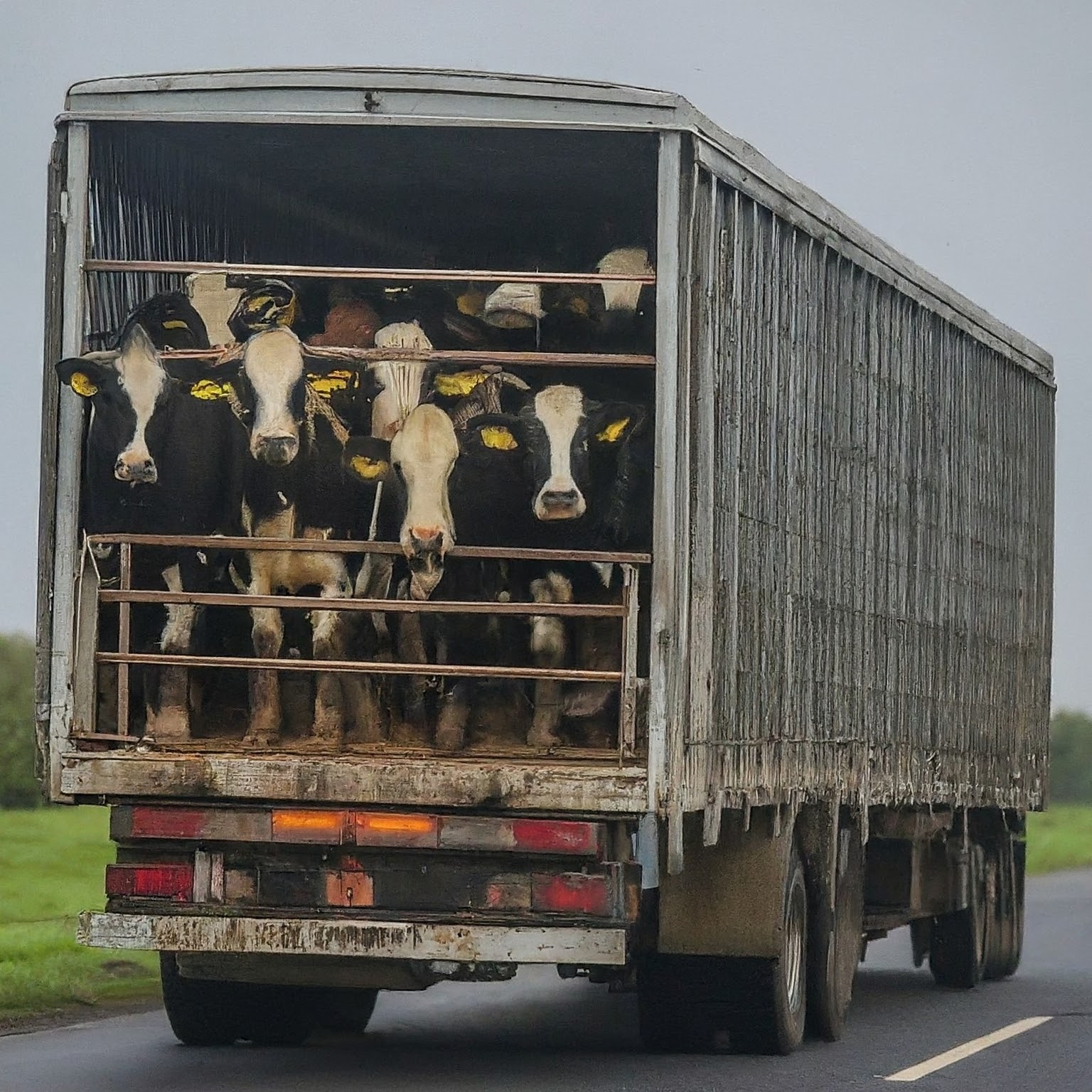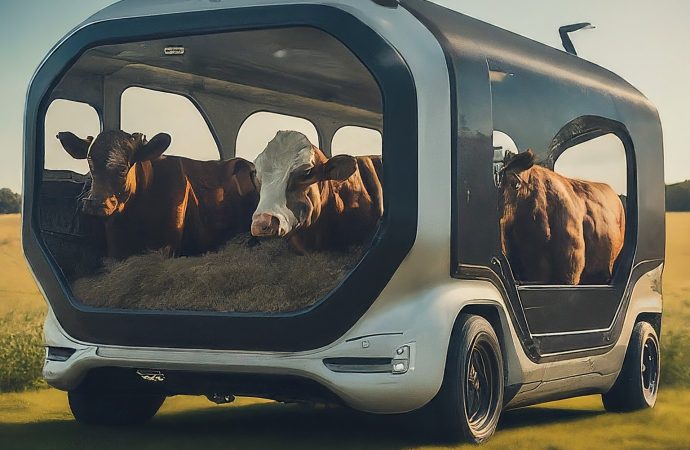Meet the Author Dr. Sarah Carter is a veterinarian with over 15 years of experience in animal health and biosecurity. She has a strong interest in public health and the connections between animal agriculture and zoonotic diseases (diseases transmissible from animals to humans). In this blog, Dr. Carter explores the potential risks associated with the
Meet the Author
Dr. Sarah Carter is a veterinarian with over 15 years of experience in animal health and biosecurity. She has a strong interest in public health and the connections between animal agriculture and zoonotic diseases (diseases transmissible from animals to humans). In this blog, Dr. Carter explores the potential risks associated with the transportation of livestock and the importance of biosecurity measures.
The agricultural landscape is evolving. The rise of mobile livestock operations, where animals are transported long distances before slaughter, raises concerns about animal welfare and disease transmission. While these practices may offer economic benefits, the potential consequences for animal health and public health require careful consideration.
Stressful Journeys
Cramped quarters, limited movement, and exposure to unfamiliar environments can compromise the immune systems of transported animals. This stress makes them more susceptible to existing infections and increases the risk of developing new ones. Overcrowding within transport vehicles also facilitates the spread of pathogens between animals.
Public Health Concerns
Disease outbreaks in animals can pose a significant threat to human health. Zoonotic diseases like avian influenza and Nipah virus have emerged in recent years, highlighting the interconnectedness of animal and human health. Increased movement of livestock raises concerns about the potential spread of existing and emerging zoonotic diseases.

Picture by: Google Gemini
Biosecurity on the Road
Implementing biosecurity measures throughout the transportation chain is crucial for mitigating disease risks. This includes regular cleaning and disinfection of vehicles, following strict quarantine procedures, and ensuring proper animal health checks before and after transport. Collaboration between farmers, veterinarians, and public health officials is essential to develop and enforce effective biosecurity protocols.
Working Together
Open communication and collaboration are key to addressing these challenges. Farmers, animal welfare advocates, and public health officials must work together to find solutions that prioritize animal well-being, disease prevention, and public health. Investing in research on disease transmission in mobile operations and developing innovative transportation methods that minimize stress on animals are critical steps forward.
Key Considerations for Disease Prevention in Mobile Animal Operations (Table):
| Aspect | Action |
|---|---|
| Animal Health | Pre-transport health checks, vaccination programs |
| Biosecurity | Vehicle disinfection, strict hygiene protocols |
| Transport Conditions | Adequate space, ventilation, temperature control |
| Rest Stops | Providing access to water and feed during long journeys |
| Monitoring | Tracking animal health during and after transport |
Conclusion:
The transportation of livestock presents both opportunities and challenges. By prioritizing animal welfare, implementing robust biosecurity measures, and fostering collaboration between stakeholders, we can minimize the risks associated with mobile operations and ensure a more sustainable and secure food system.
















